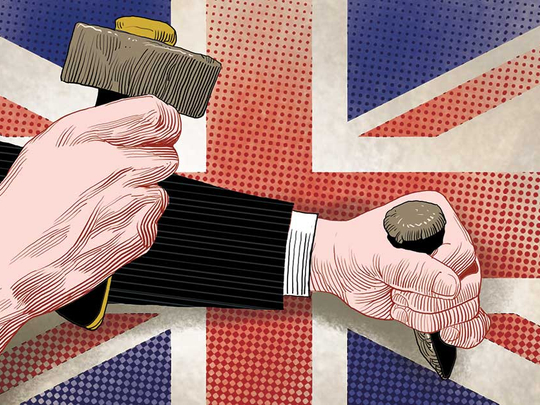
I know many Remain voters would have preferred Labour MPs to take to the trenches and oppose the triggering of Article 50 at every twist and turn, including last Wednesday night’s vote in the Commons, but it’s time to face facts.
A majority of voters in a majority of constituencies voted to leave the European Union (EU). I wish it wasn’t so. I put plenty of shoe leather into campaigning for a different result and still believe that Britain would be stronger, safer and better off inside the EU. But imagine for a moment what would happen the morning after if parliament blocked the result of a referendum in which 33.5 million people had voted.
Britain would be plunged into a constitutional crisis. There might even be riots. The prime minister would be forced to call a general election in which “Remain or Leave” would be the central question. The result would be a very different parliament, committed to the hardest of hard Brexits.
That doesn’t mean Britons should give the government a blank cheque in these negotiations. The absence of a big Conservative rebellion meant Commons votes were lost on amendments designed to bring about better parliamentary scrutiny. But the government does not have a majority in the House of Lords. A heavy weight of responsibility rests on the prime minister’s shoulders to deliver a deal that works in the interests of our whole country, not just a privileged few. A deal that leaves people worse off will deepen the crisis of trust in politics.
Across western democracies we are already witnessing the consequences of what happens when people abandon their faith in mainstream politics. I don’t doubt the integrity or passion of those who have been ringing MPs to demand a different direction, but if people think that overturning a vote at the ballot box by a vote in parliament would take the country to a better place, then I am afraid they are kidding themselves.
Sneering at people
At times of economic upheaval and hardship, history tells us that people can become fearful and resentful. We saw that resentment writ large during the EU referendum campaign. People have sent a clear message that they feel left behind, that they feel unheard and that they feel they don’t belong in a world that is changing around them. Sneering at people who voted Leave, or dismissing them as ignorant or stupid is part of the problem.
Millions are at the sharp end of globalisation, victims of economic inequality and social injustice, best summed up by the phrase we heard again and again from leave voters when told that leaving the EU would make our country worse off: “Things can’t get worse than this.”
William Beveridge wrote 75 years ago: “A revolutionary moment in the world’s history is a time for revolutions, not for patching.” Just as the Labour party built the post-war consensus around the foundations of the welfare state, so too now Britons must reshape the post-Brexit country, re-imagining social democracy to meet the big economic and social challenges of this century.
Without radical action, we face another lost decade of stagnant wages and falling living standards. Beveridge identified the five giants of want, squalor, ignorance, disease and idleness. We must provide answers to their modern manifestations.
Reskill and retrain
Britain needs an education system that prepares people to seize the opportunities of the 21st century — from tackling the inequality that sees the poorest children arriving at school at a disadvantage from the age of five to creating a truly lifelong learning system to help people reskill and retrain as they’re living longer and working longer. Britain has to tackle the massive inequality in infrastructure spending and initiate a radical devolution of power across England to build strong and resilient regional economies; give councils the freedom to borrow to genuinely address the housing crisis; have the courage to work with people from across the political spectrum to address the health and social care crisis to save the National Health Service collapse; be brave enough to develop a new model for taxing wealth, not simply income, worrying less about how we tax the dead and more about how we fund the living. These are just some of the ideas that a Beveridge Report for the 21st century might contain.
My party must once again reflect on the painful consequences of defeat. If Labour wants to be in government again to create the kind of world that we want to see, we must first engage with the world as it is. We will defeat the false promises of nationalism, protectionism and populism — not by striking a radical pose, but by providing radical answers. — Guardian News and Media Ltd
Wes Streeting is the Labour MP for Ilford North and a member of the House of Commons Treasury Select Committee.








